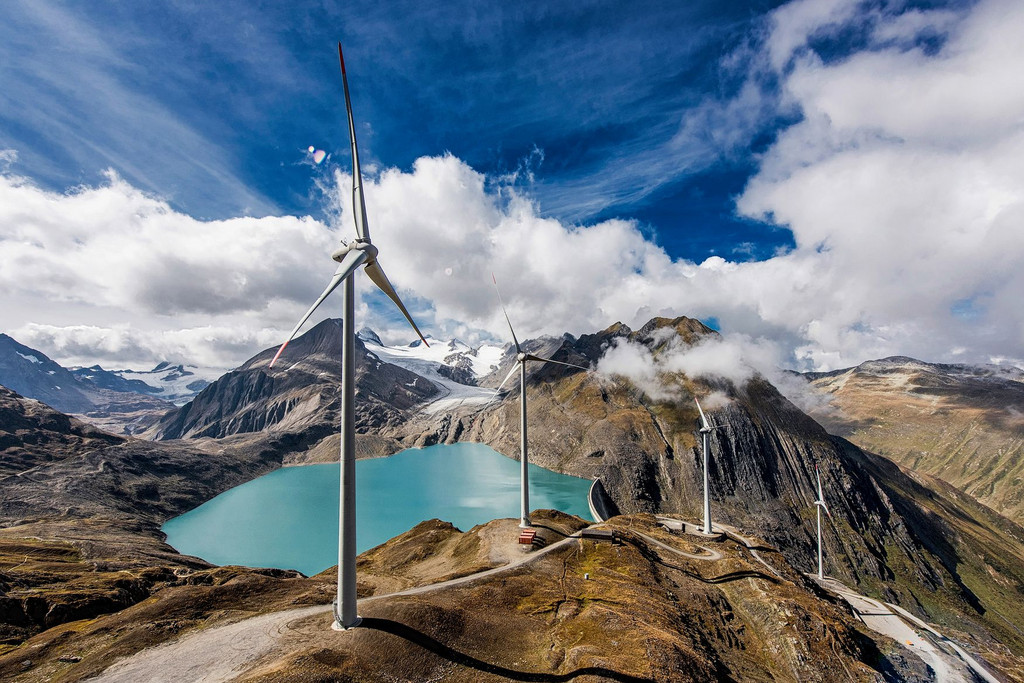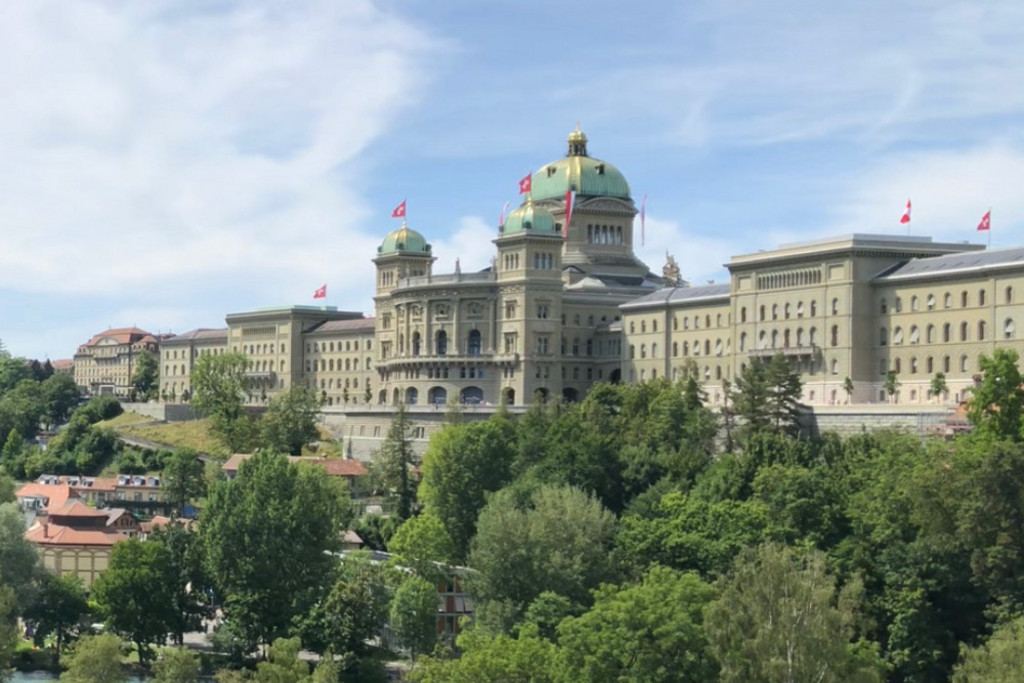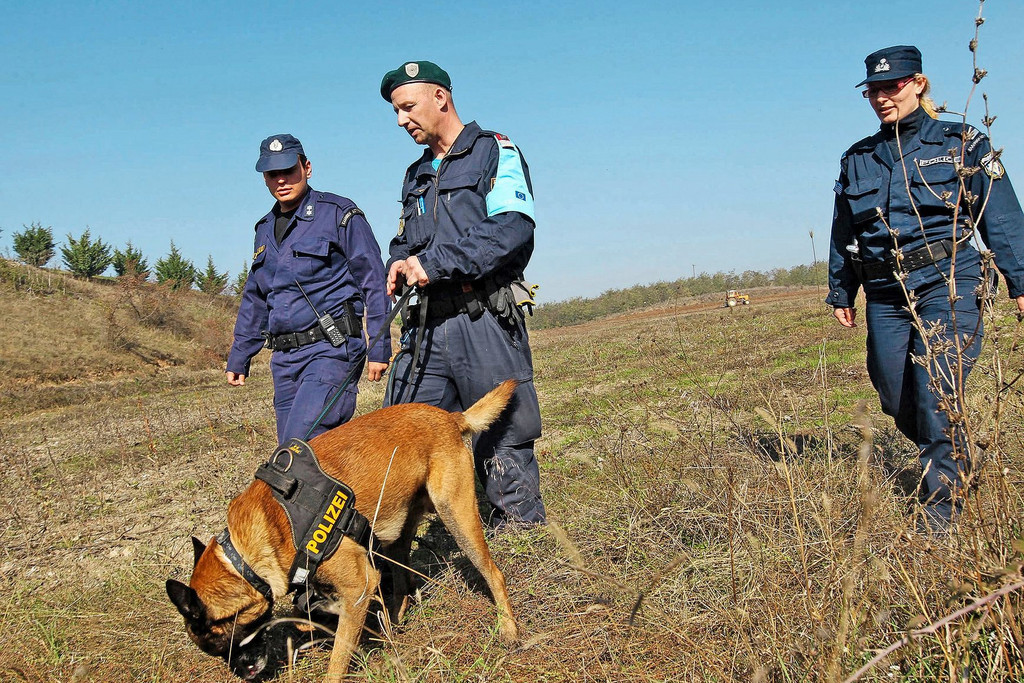Switzerland to deliver on a long-standing climate pledge – depending on what voters say
12.05.2023 – Theodora Peter
More than seven years on from the UN Climate Change Conference in Paris, the Federal Council and parliament have approved a climate bill. On 18 June, voters will decide whether the legislation comes into force. The SVP opposes the new law.
December 2015 was a “historic step” – the moment when the international community agreed in Paris to work together to combat climate change and its devastating consequences. The aim was to limit global warming to well below 2°C. To achieve this ambitious goal, the world must substantially reduce environmentally harmful greenhouse gas emissions such as CO2 within the next few decades.
The euphoria of Paris has faded over the years. Many countries have fallen behind their emissions targets. The pandemic, the war in Ukraine, and the energy crisis have shifted priorities. Political efforts to fight climate change have also stalled in Switzerland. Voters most recently rejected a beefed-up CO2 Act in 2021, which would have introduced a green levy on fossil fuels (see “Swiss Review” 4/2021).
Carbon neutral by 2050
Heat waves and extreme weather continue to illustrate how urgently action needs to be taken. The sustained acceleration in the glacier melt rate has become the poster child of climate change in Switzerland. Researchers predict that most ice masses in the Alps will have been lost by the end of this century. But there is still time to curb global warming, say scientists.
The Federal Council and parliament have now agreed on framework legislation that sets out the path to Switzerland reaching net zero by 2050. The bill calls for harmful greenhouse gas emissions to be cut in stages. Specific reduction targets will apply to industry, motorised traffic, and buildings.
Massive investment in zero-carbon technology will be needed. To this end, parliament has approved a stimulus programme worth 3.2 billion Swiss francs, of which 2 billion will go into replacing oil and gas heating over a ten-year period. A further 1.2 billion will be used to promote innovation.
Pressure from the Glacier Initiative
The draft law is a counterproposal to the so-called Glacier Initiative, which the cross-party Swiss Climate Protection Association launched at the beginning of 2019, collecting the necessary 100,000 signatures within just a short space of time. Faced with grassroots pressure, parliament decided to act. Its bill is acceptable to the climate activists, who have since withdrawn their initiative. However, if parliament’s counterproposal fails at the ballot box on 18 June, the Glacier Initiative could still be put to voters at a later juncture.
Researchers predict that most ice masses in the Alps will have been lost by the end of this century. But there is still time to curb global warming, say scientists.
Despite broad-based support in parliament, not all the political parties agree with the climate change legislation. The SVP calls it the “energyguzzling act” and has initiated the 18 June referendum, claiming that energy consumption will increase dramatically if people are forced to drive electric cars in future and fit their homes with electric heat pumps. Switzerland cannot generate enough electricity as it is, it adds. Opponents of the bill also say that property owners who eventually replace oil and gas will be hit with extra costs. Supporters, on the other hand, point to public-sector investment in renewables such as solar, hydro, and wind.
Special focus on solar and hydro
Notwithstanding climate change legislation, parliament last autumn approved an amendment to the Energy Act, which will speed up the construction of solar farms like the one being planned in the canton of Valais (see “Swiss Review” 1/2023).
Furthermore, the National Council and the Council of States are currently debating legislation to ensure electricity security. The aim is for Switzerland to produce more energy from renewable sources – particularly hydropower. Berne has identified 15 dam projects to provide additional electricity in winter especially. One of these would be the construction of a reservoir below the Trift Glacier (see “Swiss Review” 1/2022). Critics fear that nature conservation will suffer as a result. Hence, there is a distinct possibility of this issue being put to voters too.
But first we have the climate referendum on 18 June, which will also be the first major test for the new energy and environment minister, Albert Rösti (SVP). In his former capacity as a National Councillor and a lobbyist for the oil industry, Rösti was one of the leading figures opposing the shift away from fossil fuel. In his role as Federal Councillor, he must now defend the climate bill – against the will of his own party.
Overview of all federal votes on 18 June 2023
Global minimum tax for multinationals
As a member of the Organisation for Economic Co-operation and Development (OECD), Switzerland has agreed to implement a global minimum tax on large businesses from 2024 onwards. A 15 per cent minimum levy will apply to multinationals that generate over 750 million Swiss francs in annual sales. Many major companies in Switzerland will consequently have to pay more, thereby creating additional revenue for the public purse. Support for this international mechanism is unanimous. However, there is disagreement over how to distribute the extra money. According to the allocation formula adopted by parliament, three quarters of the additional tax income will go to the cantons and only one quarter to the federal government. The SP recommends a No vote and wants more money to remain in the federal coffers.
Legislation to combat climate change and invest in renewable energy
Switzerland aims to become carbon-neutral by 2050. The Federal Act on Climate Protection Goals, Innovation and Strengthening Energy Security sets out the path to achieving this goal, and is an indirect counterproposal to the cross-party Glacier Initiative, which has now been withdrawn. The SVP opposes the new legislation.
Covid-19 Act back under scrutiny
Despite Covid restrictions having ended, parliament has extended the Covid-19 Act until the end of 2024 as a precautionary measure. This means that the legal basis for reactivating the Covid vaccine passport requirement – e.g. for travel to other countries – continues to apply for the time being. The Friends of the Constitution pressure group opposes the extension and has now initiated its third referendum on the law.





![[Translate to en:]](/fileadmin/_processed_/d/2/csm_Revue_202204_Huehnerfarm_SH-Reportage_3074_7901ca94df.jpg)





Comments
Comments :
Es braucht Distanz, um sehen zu können. Angst ist definitiv der falsche Freund. Und Oel ins Feuer werfen, die falsche Handlung.
Problem, das so schnell wie möglich gelöst werden muss, denn morgen könnte es zu spät sein.
Die Schweizer Gletscher schmelzen jedes Jahr schneller. Woher nimmt die Schweiz Trinkwasser, wennn es keine Gletscher mehr gibt?
Klimaschutzpolitik ist eine absolute Gehirnwäsche! Milliarden wird es den Steuerzahler kosten, so lange die JA stimmen wird, und das traurige Endresultat wird sein: “Es wird nichts bringen!” Ich kann das Buch “The Fingerprints of the Gods” sehr empfehlen!